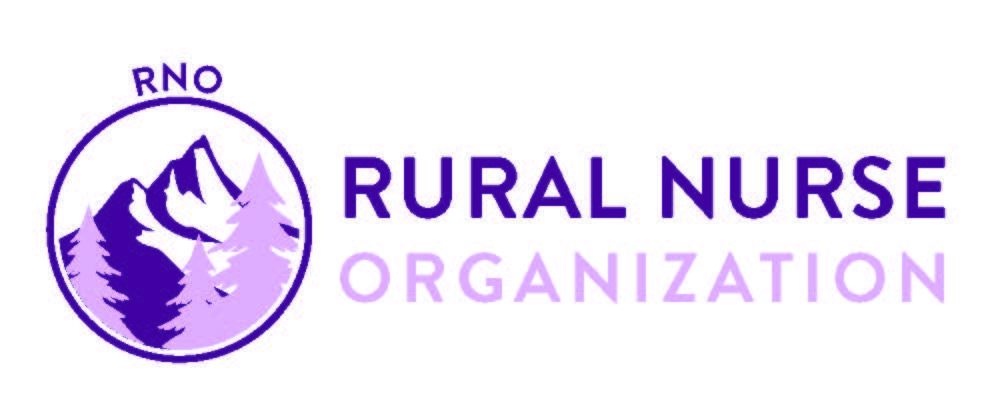 | rural nurse organization |
RNO Diversity Statement
The RNO is an organization formed for the purpose of recognizing, promoting, and maintaining the unique specialty of rural nursing practice. The RNO recognizes the diversity of rural nursing practice and is a voice for rural nurses to healthcare agencies, academia, and government. The recent deaths of Breonna Taylor, Ahmaud Arbery, George Floyd and Rayshard Brooks are vivid reminders that racial disparities still exist.
As an organization we denounce racism and are committed to achieving health equity, reducing disparities, and respecting human dignity. To undo racism it requires each of us to examine our own biases and engage in difficult conversations. We ask you to consider the history of racism and injustice as we care for our colleagues and our patients, for whom these events have caused pain.
Addressing racism suggestions from the Council of Public Health Nursing Organizations:
- Remember to address issues – not individuals. Read, learn, and grow. Identify and Speak Up when you see Racism at play.
- Be honest with yourself. What is your level of understanding about what is happening? How much time are you willing to commit? Do you have the personal commitment and desire to see things all the way until the end?
- What are your strengths? Volunteer where your strengths lie. Not everyone can demonstrate or protest.
- Contribute to peace building activities that will need to happen consistently.
- Exercise your right to vote and encourage others to do so. Commit to civic engagement at all levels.
- Talk to all children. Protect them, but also be honest. There are many teachable moments happening all around us.
- Own your own privilege and leverage it for Justice’s sake.
- Engage with partners, faith-based organizations, non-profits, etc.
(from the Perinatal Quality Improvement Organization )
S- Set limits and only allow racially respectful dialogue and actions in your work space.
P- Practice and prepare. Plan how you will act if you see or hear someone being treated or referred to disrespectfully.
E- Express your concerns. Discuss, but do not blame others.
A-Apologize if you said or did something that others find hurtful.
K- Keep improving. Be mindful and willing to become aware of your unconscious biases.
U- Uncover and learn from disrespectful comments and actions, including jokes.
P- Persuade others to SPEAK UP!
Consider taking the SPEAK UP pledge https://www.perinatalqi.org/page/speakup
Resources:
Not specific to nursing:
Peggy McIntosh (1998). "White Privilege: Unpacking the Invisible Knapsack"
https://www.racialequitytools.org/resourcefiles/mcintosh.pdf
JSTOR Daily has put together a series of resources/articles on institutionalized racism: https://daily.jstor.org/institutionalized-racism-a-syllabus/?fbclid=IwAR0XqLV-pRS9aFSazieLHP2nGmRpFryEszsiYsd58qQeErrL6jriPqOFugI
Specific to nursing:
An integrative review of 29 articles in peer-reviewed nursing journals focusing on Black Americans experience of institutionalized racism.
Thurman, W.A., Johnson, K.E., and Sumpter, D.F. (2019). Words matter: an integrative review of institutionalized racism in nursing literature. Advances in Nursing Science, 42(2), 89-108.
Thorne, S. (2017). Isn’t it high time we talked openly about racism? Nursing Inquiry, 24(4), e12219
Lekan, D. (2009). Sojourners Syndrome and Health Disparities in African American Women. Advances in Nursing Science, 32(4), 307-321.
YouTube videos that address concepts that affect people of color and marginalized populations:
Why the "wrong side of the tracks" is usually the east side of cities: https://www.youtube.com/watch?v=MehKgIcoj6o
Cultural Humility: https://www.youtube.com/watch?v=SaSHLbS1V4w
Books for your reading:
White Fragility: Why It’s So important for White People to Talk About Racism by Robin DiAngelo, 2018
How to be an Antiracist by Ibram X. Kendi, 2019
The new Jim Crow by Michelle Alexander, 2010
The Soul of Black Folks by W.E.B. DuBois originally published in 1903
A Lesson Before Dying by Earnest Gaines published 1994 and set in the 1940's.